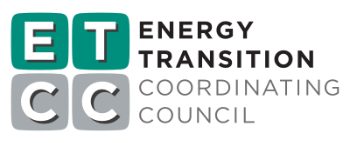Project Info
ACTIVE
Project Title
Heat Pump Rooftop Unit Demonstration
Project Number ET23SWE0054 Organization SWE (Statewide Electric ETP) End-use HVAC Sector Commercial Project Year(s) 2023 - 2025Description
The goal of this project is to understand the potential of heat pump rooftop unit (RTU) technology to electrify and decarbonize existing commercial building heating loads. Rooftop units are particularly ripe for market transformation as they are ubiquitous in the commercial sector with decades of little to no advancement and innovation. Because heat pumps move heat into buildings from surroundings, they do not require onsite combustion of fuel and can deliver heating at efficiencies in excess of 100%. This means they could achieve enormous end-use energy savings and carbon emissions reduction relative to the incumbent gas fired RTUs.
Significant research and field testing have already been performed on residential applications of air-source heat pumps (ASHPs). However, the limited use of heat pumps to date in the commercial roof-top unit (RTU) market has meant that there is little available third-party data to demonstrate the performance characteristics as well as non-energy benefits of heat pump RTUs. There is an urgent need to address this gap in the available data as consumers, utilities, and governments seek ways to significantly reduce emissions from space heating in a commercial building market which has a high penetration of existing RTUs. Heat pump RTUs offer an ideal solution for existing buildings because they are drop-in replacements for existing RTU systems, reducing installation time and cost.
For this project, we will characterize the energy consumption of heat pump RTUs using data collected from monitoring of actual equipment performance. We know that unit controls, building characteristics, and weather patterns have a major influence on actual energy consumption, so this information will provide a significant improvement relative to energy consumption estimates based only on equipment performance ratings and manufacturer claims. In addition, we will monitor space conditions to assess the ability of heat pump RTUs to maintain comfortable indoor environments for building occupants.
The monitored heat pump equipment will include a high-efficiency RTU, ideally with variable speed compressor technology, and a standard efficiency heat pump rooftop unit with single or two stage compression. These heat pumps will likely be in the 3-5 Ton range. We will select RTUs that can be procured through local market channels and delivered for installation before the beginning of the planned monitoring period. In case multiple manufacturers offer products meeting these criteria, the lowest cost qualified product will be selected. The capacity of the RTUs evaluated will be determined based on the heating and cooling loads of the laboratory building zones through the project. A conventional gas-pack RTU will be monitored to serve as a baseline for comparison. These systems will be instrumented to measure their overall power and energy consumption, delivered heating and cooling capacity, and coefficient of performance (COP). Additional instrumentation will allow us to monitor detailed aspects of the equipment’s performance such as controls strategies and defrost performance. Finally, we will document key installation and design characteristics for these systems to ensure they can deliver benefits to building owners, occupants, and utilities alike.
